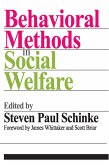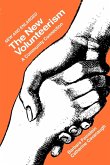Originally published in 2004. Exclusion is a popular area of sociological research, with much analysis pointing towards survival practices and inclusion mechanisms as ways to cope with and confront exclusion. However, the question of what it means to act and how it is possible to do so from a vulnerable situation has yet to be properly addressed. This resourceful volume takes on this challenge, examining how to react and the measures to employ in instances of material and symbolic deprivation. It analyzes whether alliances can be formed and their potential benefit, and discusses which supports are available despite structural inequality and no opportunity for reciprocation. Drawing together illustrative case studies from across Europe, the contributors consider in depth how a community or individual can take support from a spoiled identity and transform both it and the physical situation. This illuminating volume also includes discussions of living without support, security of living conditions and dignity, claims for citizenship, collective action, continuity and survival. It proposes an innovative and groundbreaking theory for 'weak' action.
Hinweis: Dieser Artikel kann nur an eine deutsche Lieferadresse ausgeliefert werden.
Hinweis: Dieser Artikel kann nur an eine deutsche Lieferadresse ausgeliefert werden.









